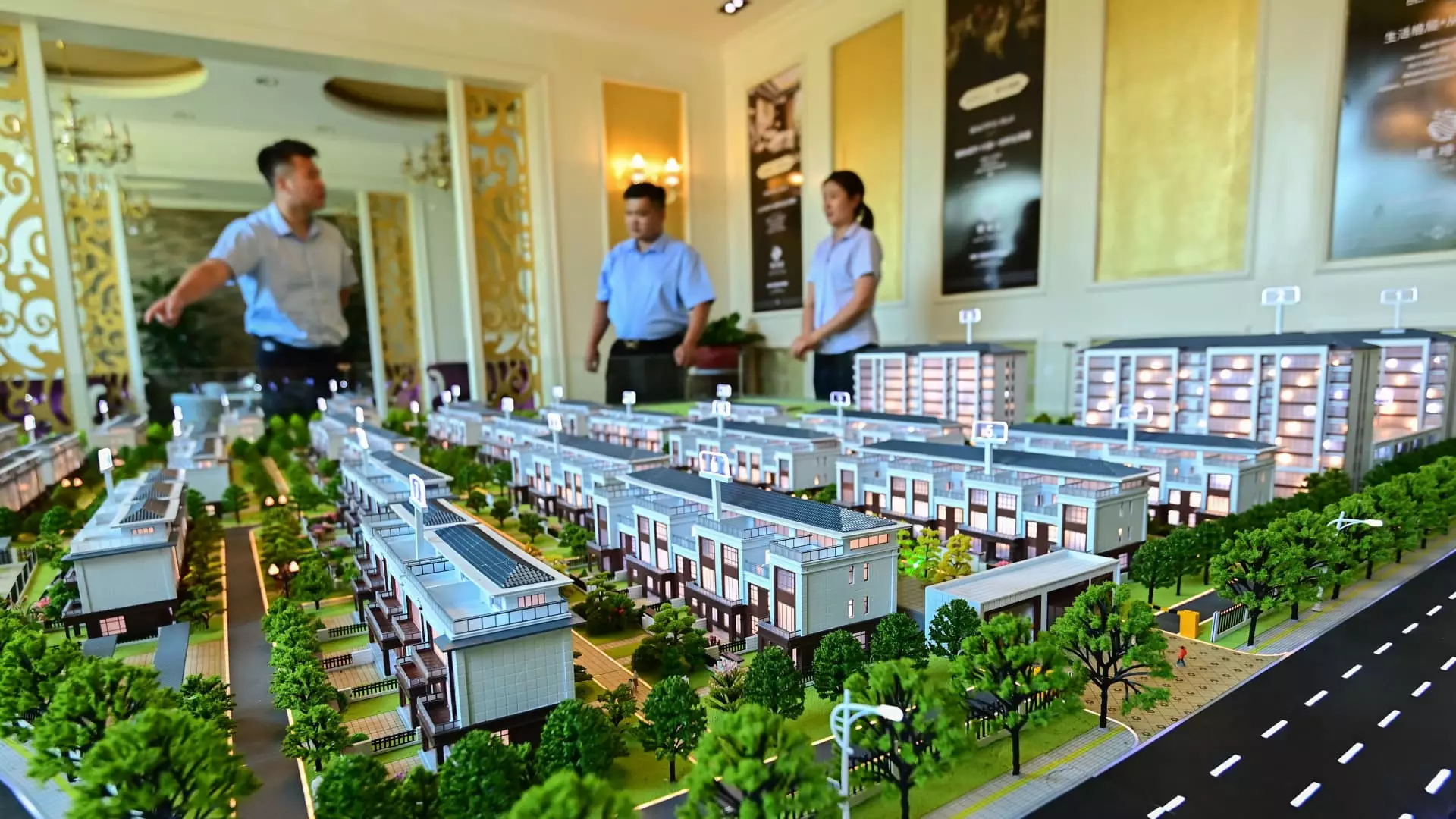China’s real estate market was once a symbol of the nation’s economic ascent, exemplifying the notion of the “Chinese Dream.” Over the last decade, however, it has descended into a twilight struggle, marked by plummeting demand and rampant stagnation. Goldman Sachs’ latest assessments underscore a grim future trajectory: annual demand for new homes in urban areas will dwindle to under five million units, a staggering drop from the peak of 20 million units witnessed in 2017. As the fragile threads of population growth fray, the already troubled housing market inches closer to collapse.
The crux of this downturn lies in an impending demographic crisis, compounded by soaring housing prices, a declining birth rate, and economic uncertainties. Rather than being seen as a temporary blip, these trends reveal a more systemic failure – one that reflects societal complexities. With experts like Tianchen Xu from the Economist Intelligence Unit projecting a population decline to below 1.39 billion by 2035, it becomes increasingly clear that the implications go beyond mere numbers. The fallout will now reverberate through the corridors of power, policy, and, ultimately, the lives of millions.
Falling Birth Rates: A National Concern
Beijing’s previous attempts to boost fertility rates have often been met with disillusionment. Despite softening the long-standing one-child policy and introducing enticing cash incentives, young couples remain hesitant to expand their families. Decreasing wages, precarious employment prospects, and a social safety net that barely alleviates financial burdens culminate in a generational reluctance to enter parenthood. Unfortunately, the rub lies not just in a reluctance to have children, but in the changing cultural values that prioritize autonomy and individualism over traditional familial structures.
The ramifications of this cultural shift are stark. The reported closure of nearly 36,000 kindergartens in just two years starkly illustrates the fallout from decreased enrollment—an unsettling precursor to the dwindling demand for housing in school-dense areas. Such changes have sparked a rethink in property valuations that have historically hinged on access to established educational institutions. This once-revered avenue for securing property value is now being steadily undermined, revealing the fragility of a market propped up by unrealistic expectations.
Economic Pressures on Housing Demand
The struggle to generate growth in the property sector has further accelerated as new home prices plunge and sales take an alarming hit—down 11% year on year across 30 major cities in early June. This stark decline, as reported by economists like Larry Hu from Macquarie, raises serious questions about the efficacy of government interventions implemented to stem the tide. Central and local governments have scrambled to infuse life into the flagging market, yet the lack of tangible outcomes raises doubts about their understanding of the market’s underlying issues.
Amidst this economic chaos, the once-lofty expectations surrounding property investment seem increasingly naïve. Prospective homeowners are becoming wary; buyers are more inclined to sell off investment properties rather than enter the market, contributing further to a climate of uncertainty. The grim outlook has unsettled long-held assumptions that China’s rapid urbanization and housing upgrades would act as lifelines for a beleaguered market. As Goldman Sachs posits, while urbanization may mitigate some damage in the short term, the long-term demographic drag is an unavoidable reality.
A Paradigm Shift?: Reevaluating Real Estate Investment
The forces shaping China’s real estate sector warrant a broader reevaluation of what homeownership embodies in a society undergoing monumental shifts. Tangibility in ownership—which was a badge of honor—might soon be perceived as a burden as economic pressures mount. Homebuyers like a Beijing mother, who witnessed a 20% drop in her property’s value in just two years, illustrate the seismic change that has taken hold. The desire for a good education for her child has cost her dearly, entrenching her in frustration rather than fulfillment.
Investors now face an existential question: Is property still a sound investment, or merely a financial trap tethered to a faltering economy? Property has long been viewed as a ‘safe’ investment; however, it seems the notion itself is being called into question. The aspiration of homeownership, steeped in tradition, is now overshadowed by resignation in the face of systemic economic challenges, questioning the entire fabric of housing equity and access.
In this complex landscape, the utopian vision of a prosperous China risks being replaced by the stark reality of demographic decline and economic stagnation. The beautiful homes that once stood as beacons of hope may soon reveal themselves as nothing more than empty vessels in a deeply altered social and economic reality.


Leave a Reply